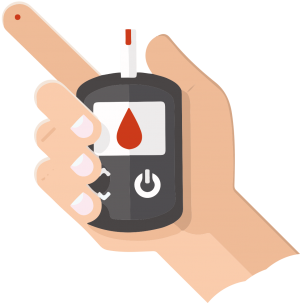
What is diabetes? Diabetes is a condition that significantly impairs the body's ability to control glucose levels in the blood. Glucose is essential fuel for our body and our brain. Diabetes is the fastest growing chronic condition in Australia, according to Diabetes Australia. How is diabetes linked to dementia? Not all people with diabetes will develop dementia but they do have an increased risk. Dementia Australia states that diabetes can significantly increase your risk of developing dementia by up to a double. With approximately 30% of our entire energy input being used by our brain, it is easy to see why alterations to normal glucose metabolism can negatively affect brain function. High blood glucose levels and high levels of insulin in the blood can damage cells and blood vessels in the brain, as well as the body. As a result, diabetes represents one of the major vascular risk factors for developing dementia. Type 1 diabetes With type 1 diabetes, the body can no longer produce insulin, which moves glucose out of blood and into cells. As such, blood glucose levels in type 1 diabetes can be challenging to control and can result in episodes of very low blood sugar levels, called hypoglycemia. These episodes can damage brain cells and any more than four such episodes a year can be associated with a very high risk of cognitive impairment. Over time and with age, these episodes can lead to impaired brain function and lowered brain capacity, which may not be able to withstand the impact of disease, such as Alzheimer's disease. Type 2 diabetes The body is not as sensitive to insulin, or the pancreas cannot make enough insulin in people with type 2 diabetes. This can lead to a gradual increase in glucose levels in the blood. As it happens slowly, many people may not feel unwell when they develop type 2 diabetes. The health of blood vessels and brain cells can be impacted by type 2 diabetes, leading to an increased risk of developing dementia. Insulin is also important for brain health, and there has been substantial research on how insulin signalling may have roles in maintaining neuronal function. Abnormal insulin signalling and processing may also impact the development of specific pathological features of Alzheimer’s disease, such as amyloid plaques. I have diabetes. How can I reduce my risk of developing dementia? Managing your diabetes is important to reducing your risk of developing dementia. Regularly visiting your health adviser, taking your medication, and checking your glucose levels will help to achieve this. Additionally, it is equally important to reduce your risk of developing diabetes and vascular disease by eating well, exercising regularly and keeping your blood pressure and cholesterol levels in check.
|